
Contents
Do You Know What A-Levels Are?
In case you are a student who still has no idea about what to do after successful completion of your secondary school education then chances are that you have come across the term A-Levels once or several times.
A-levels is a common academic program for students, but what does this exactly mean, and why are A-Levels regarded as one of the most renowned and prestigious qualifications for learners?
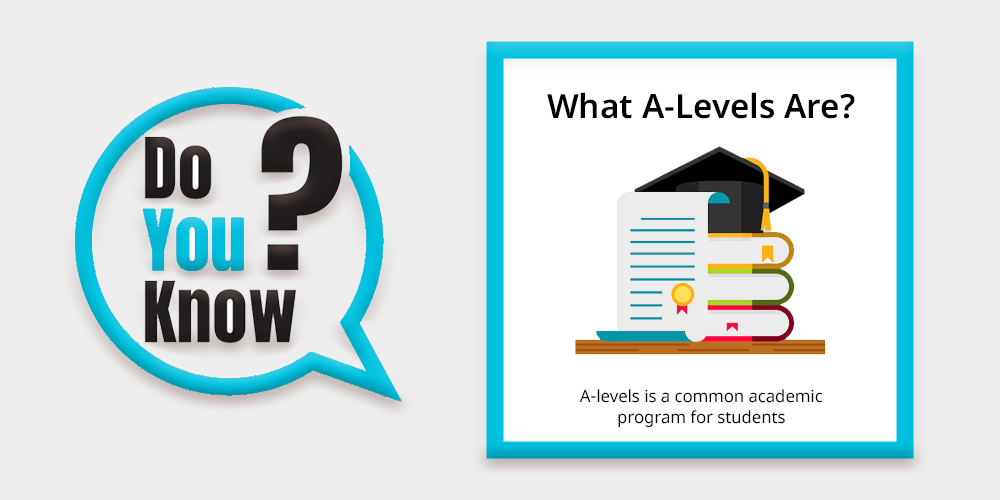
In this blog, we will expound on everything that you need to know about A-levels, including what subjects students usually take, how assessment is done, and why the A-level program prepares you better for your future careers.
Explore the detailed comparison between a-level vs cbse , igcse vs a-level and a-level vs ib .
What Are A-Levels Curriculum?
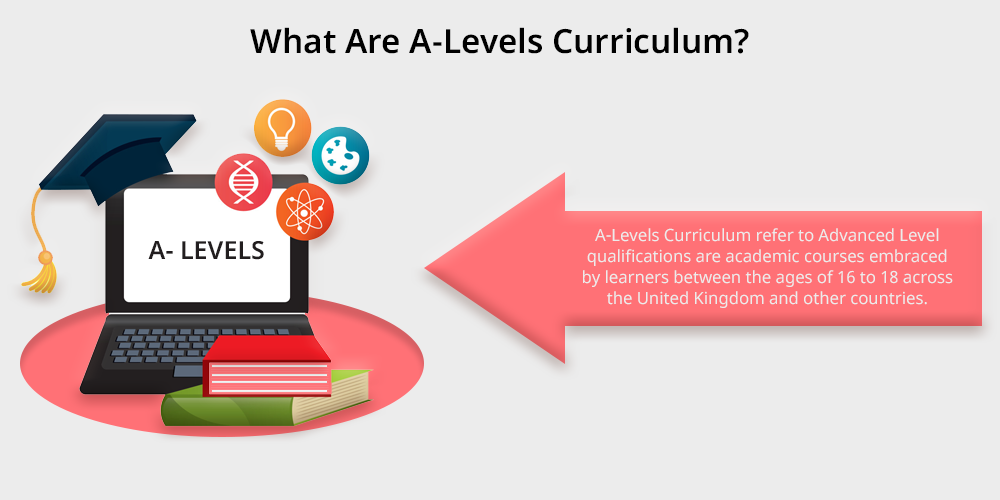
A-Levels Curriculum refer to Advanced Level qualifications are academic courses embraced by learners between the ages of 16 to 18 across the United Kingdom and other countries. These are GCE courses and they are known globally among all universities.
A-Level programs are a standard measure for university entry, particularly for those wishing to enter a British university, and are characterised by a high level of academic depth.
One of the major strengths of the A-Level system is flexibility with added depth. Students opt for certain subjects in which they want to specialise in two years which they may be interested in or want to register for at the university level.
The A-Level qualification prepares students in a specific subject that interests them and is suitable for students who have a clear vision towards their further education or career.
Also, read, Education empowers the life of every student to learn how education shapes your career.
A-Level Curriculum and Subject Syllabi
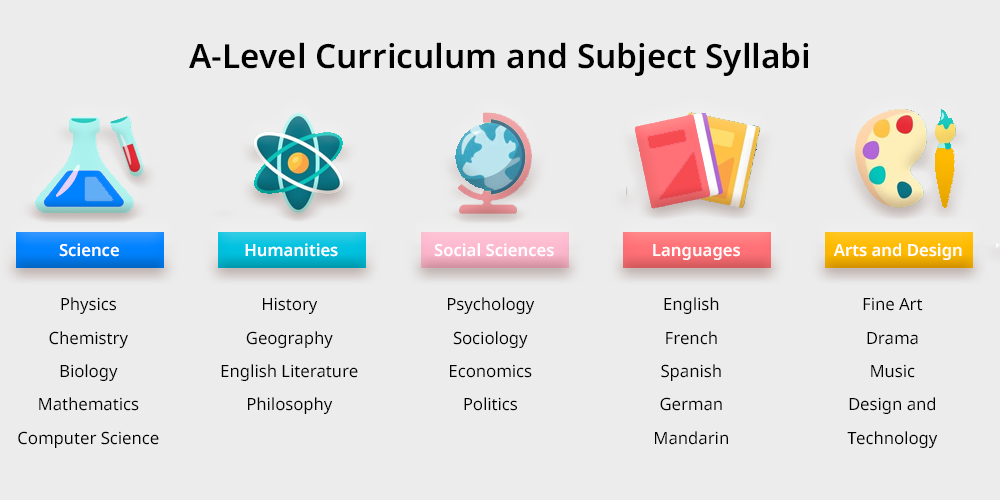
The A-Level Curriculum majorly focuses on Life Skills, Knowledge Skills, and Subject Discipline.
- Life Skills – Life skills help students develop important values, abilities, and attitudes that will guide them throughout life, helping them become responsible adults and good citizens. These skills are part of learning that goes beyond regular school subjects.
- Knowledge Skills – Knowledge skills aim at nurturing the way of thinking, processing, and presenting of students. These will make it possible for students to conclude information and come up with a good flow of thoughts and ideas.
- Subject Discipline – Unlike other systems in which learners may be enrolled in numerous courses, A-level students usually specialise. The majority of learners tend to select three or four courses in which they want to major in. These subjects are chosen according to the student’s abilities, preferences, and the university program or occupation the student plans to pursue.
A-Levels Curriculum covers a broad array of subjects, categorised under various fields:
- Sciences: Physics, Chemistry, Biology, Mathematics, Computer Science.
- Humanities: History, Geography, English Literature, Philosophy.
- Social Sciences: Psychology, Sociology, Economics, Politics.
- Languages: English, French, Spanish, German, Mandarin.
- Arts and Design: Fine Art, Drama, Music, Design and Technology.
For better command over the English language, Read The Importance of Grammar in the English Language
For instance, a student who intends to pursue a course in Medicine his or her choices could be Biology, Chemistry, and Mathematics.
On the other hand, a prospective lawyer could select areas of study such as History, English Literature, and Economics.
The ability to tailor your A-level subjects to your career aspirations is one of the key advantages of this program.
Learn more about a-level results day .
How Are A-Levels Assessed?
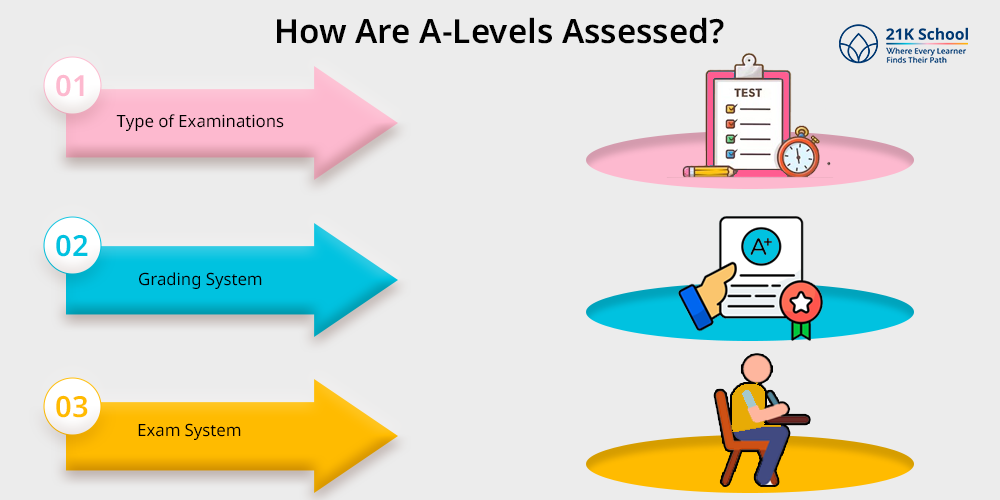
It is widely known that many A-Level courses are completed in two years with AS – Advanced Subsidiary levels being taught in the first year and A2 levels in the second year.
The type of assessment may be similar from one subject to another, but where it differs is in the fact that most of the A-Levels have end-of-year examinations after the second year.
One can also have some parts in a subject which consist of tests or exams, assignments, especially in science or arts subjects. Exams are designed to check how students think critically, analyse information, and how well they understand the chosen subject.
The A- level grading system ranges from A* as the highest to E, which is the minimum passing grade.
A-levels are important in every student’s course because most universities give set standards on who should be admitted based on a certain number of A-level grades.
The exam system is that if a student fails they have to re-sit over the entire course – but students cannot re-sit individual modules.
However, as a reminder, it’s worth bearing in mind that students can retake their A-levels as many times as necessary.
To perform well in exams, you must go through A-levels past papers to understand the level and the pattern of questions.
Advantages of the A-Level Programme
The A-Level curriculum provides many advantages that give them the reason to attain the program mainly for academic progressive improvement. Here are eight key advantages:
1. Depth of Knowledge
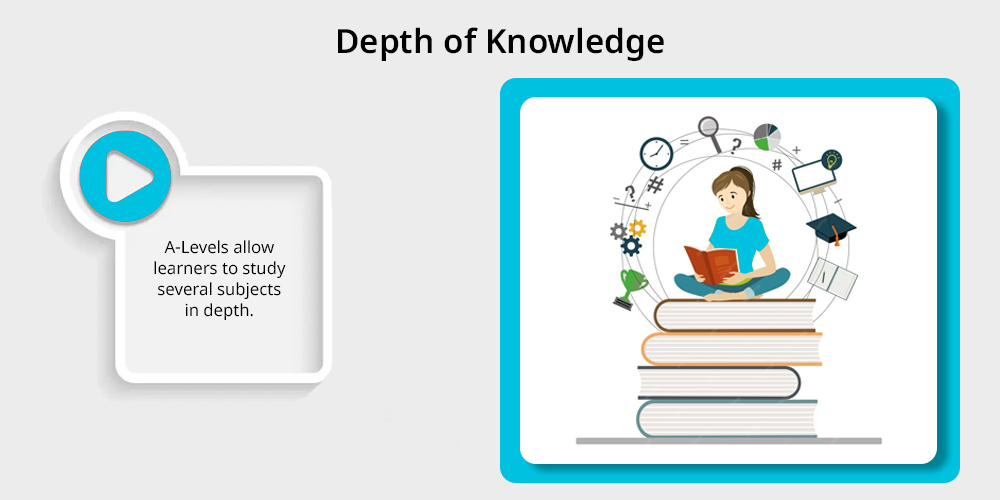
A-Levels allow learners to study several subjects in depth. This specialisation ensures that the students gain a good understanding of certain subject areas in preparation for university or workplaces that require extensive subject knowledge.
2. International Recognition

These qualifications are accepted by universities and other tertiary institutions both locally and internationally front including some of the selective universities in the UK, USA, Australia, and Europe.
Due to this, the qualification is very appropriate for students who intend to continue with their studies in other countries.
3. Flexibility in Subject Choice
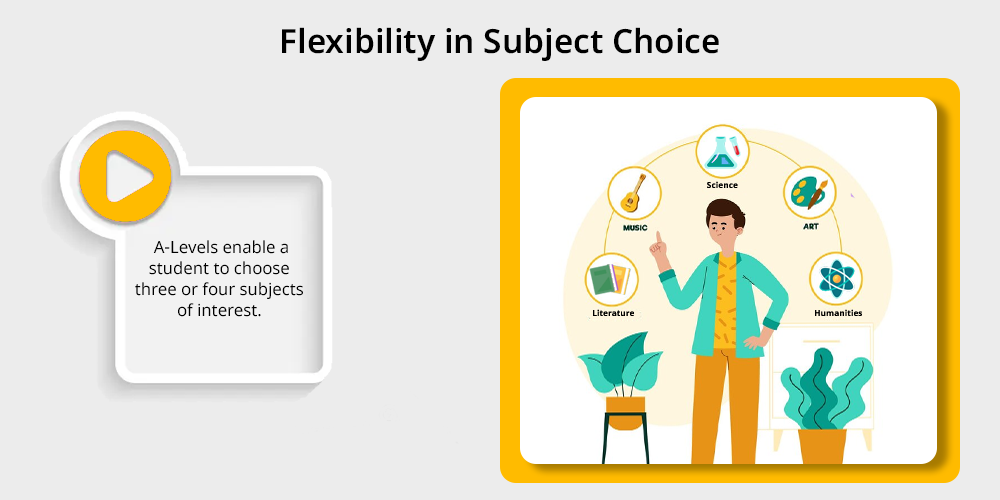
Unlike some other educational systems where students are expected to take subjects in various fields, A-Levels enable a student to choose three or four subjects of interest.
This flexibility helps them to gain an education in a way that will fit their preferred field of work.
- University Preparedness
Having a considerable academic reputation, A-Level courses are particularly suitable for university education.
The majority of universities like using A-Level graduates as they already demonstrated the ability to work independently and handle challenging material.
- Transferable Skills
From the A-level curriculum, important knowledge and skills apart from what is learned in class include critical thinking, problem-solving skills as well as time management skills.
These skills are implemented not only in universities that focus on effectiveness and efficiency but also in the working environment.
- Pathway to Diverse Careers
When it comes to A-Levels, students do not have the restriction imposed on the choice of a career path.
The huge number of subjects ensures that students remain relevant in any field and can pursue careers in engineering, medicine, law among others, and the field of arts.
4. Respect for Academic Excellence
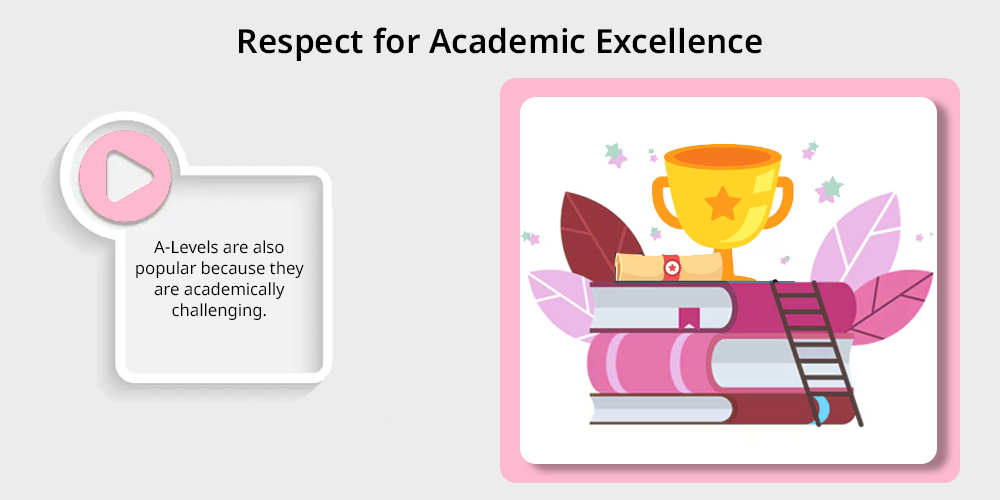
A-Levels are also popular because they are academically challenging.” They are an indication that a learner has done well in training courses that are apt to draw the attention of the university and employers.
5. Opportunities for Personal Development
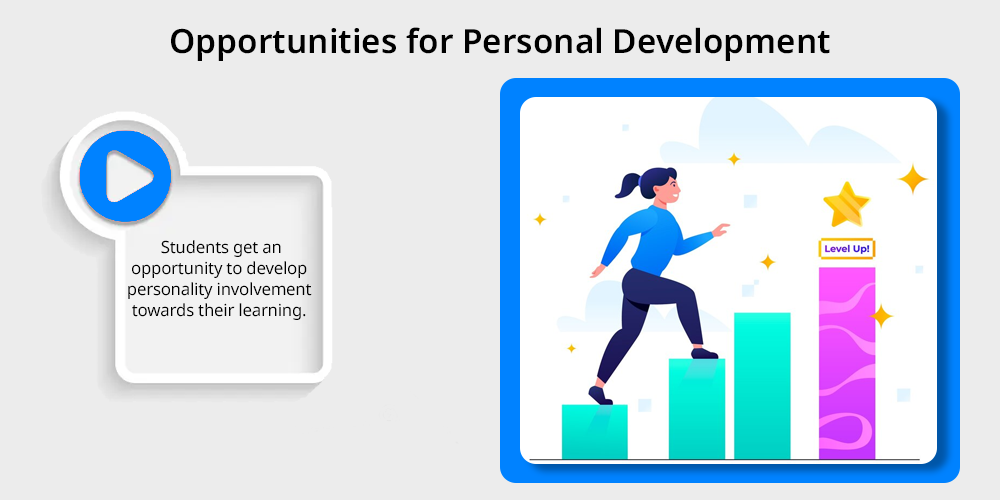
Since the number of subjects being taught to students gets reduced and students can study more subjects intensively, students get an opportunity to develop personality involvement towards their learning.
They can pamper themselves on topics that they consider appropriate and are set free of the mind, and that is quite satisfying.
Why Choose A-Levels?
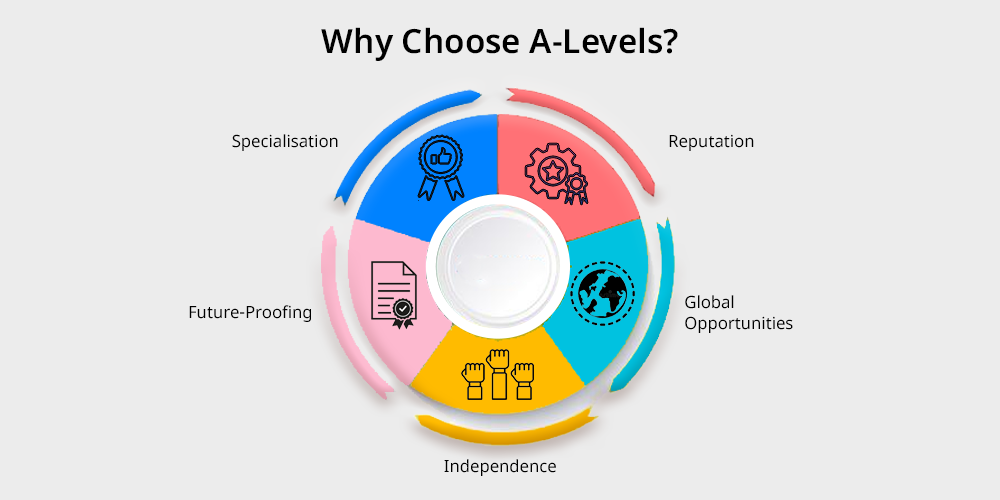
It, therefore, becomes important for students to make the right decision of opting for the A-Level program but more especially for those who are very much determined on their educational and career directions.
Here’s why:
- Specialisation: If you have an idea about the course of study in university, A-Levels give more time to the subjects that are likely to be needed for that course. Whether the student is interested in engineering, law medicine, or the arts, A-Levels prepare a student academically.
- Reputation: A-Levels also represent specific approaches to academic difficulty. A-Level qualifications are important for many universities globally, especially in the United Kingdom, and students who get good grades on A-Levels are normally given certain privileges during admissions.
- Global Opportunities: A-Levels are international, meaning that the student will be in a position to apply to the universities of her or his choice anywhere in the world. A-Levels are important for students who wish to go to universities outside their home country, more so in the United Kingdom.
- Independence: They support students taking full responsibility for their learning. A-Levels require learners to be independent of their learning.
Unlike other forms of studying that can be quite general and that involve studying subjects that may not be all that interesting to a student, A-Levels can hence be more flexible.
Along with proper study, it is also important to make sure students don’t get burned, read How can students cope with study stress - Future-Proofing: Regardless of whether you are chasing university education, apprenticeships, or employment, A-Levels prepare for university education, offering specialised training in the subject, at the same teaching transferable skills sought by employers.
Last but not least, the A-Level program is for students who are ready to commit to serious level study, can handle the class on their own, and want to aim for academic and job success.
Yes, educators approve that while the road may not be easy, the reward is measurable since it enables students to get into the best Universities and other fields.
In conclusion, A-Levels are beneficial for students who have a great organisational character, can rely on their motivation, and do not mind an academically challenging program.
Whether you want the opportunity to go to one of the prestigious universities of the world or get a job in a highly saturated field, the A-Level program will be a perfect start.


